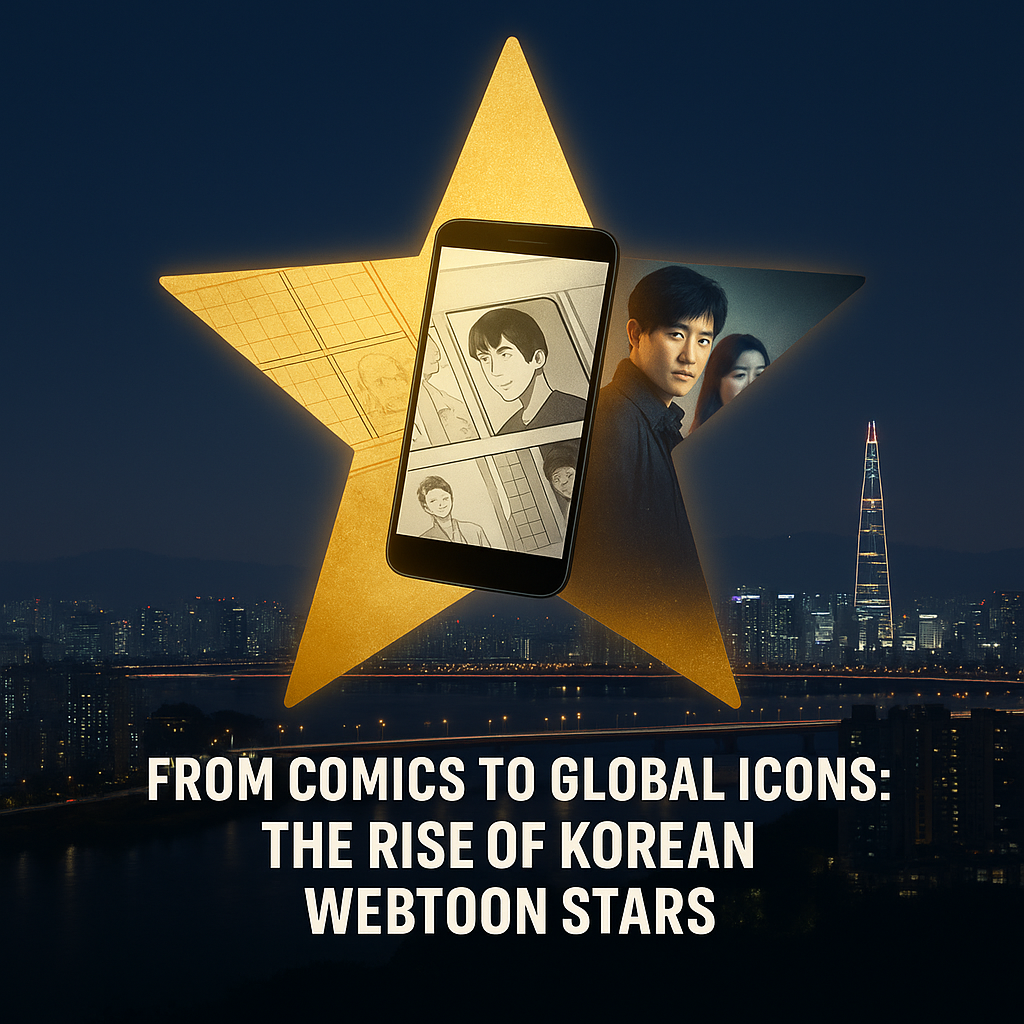| 최초 작성일 : 2025-09-14 | 수정일 : 2025-09-14 | 조회수 : 27 |

In the past, comics were often considered light entertainment, confined to print magazines and niche audiences. But in Korea, “webtoons” have transformed into a global cultural phenomenon. Accessible on smartphones, supported by powerful platforms such as Naver Webtoon and Kakao Piccoma, webtoons have become part of daily life for millions of readers worldwide. Today, some Korean webtoon creators are recognized not only as artists but as cultural stars, shaping global narratives in ways once reserved for K-pop idols or film directors.
Korean webtoons are unique in their storytelling, visual style, and digital-first format. Works like Misaeng by Yoon Tae-ho, Along with the Gods by Joo Ho-min, and Solo Leveling by Chugong show the diversity of themes—from workplace struggles to epic fantasy—that resonate both domestically and internationally. These works are no longer just read online; they are adapted into hit dramas, films, and games, making their creators household names in Korea and recognized abroad. Through this expansion, webtoon artists have stepped into the spotlight as new-generation stars. They are invited to international book fairs, featured in media interviews, and followed by global fan communities. Just as pop idols represent Korean music, webtoon stars represent the creativity and imagination of Korean storytelling.
Webtoons are now central to the global “K-culture” wave, alongside K-pop and K-dramas. International readers enjoy them through multilingual services, with translations into English, Japanese, French, Spanish, and more. Platforms like Naver Webtoon (LINE Webtoon globally) report tens of millions of monthly users outside Korea, with the United States and Europe becoming fast-growing markets. Adaptations further strengthen their impact: Itaewon Class, based on a webtoon, became a Netflix hit; Sweet Home turned into a globally streamed series; Solo Leveling was adapted into a popular anime in Japan. These examples demonstrate that webtoons are no longer a niche but a pillar of global entertainment.
From a sociological perspective, webtoon stars can be seen through Pierre Bourdieu’s concept of cultural capital. They hold not just artistic talent but also symbolic value: representing modern Korean creativity and digital innovation. Manuel Castells’ theory of the network society also applies—webtoons thrive in online ecosystems where fans share, translate, and promote content across borders. In this sense, webtoon stars embody the blending of art and technology, where creators, platforms, and readers form a global cultural network.
The rise of webtoon stars carries several implications: For Korean society, it reflects the broadening definition of who can be a “star.” Beyond singers and athletes, creators of stories and illustrations are celebrated. For the creative industry, webtoons highlight the power of digital platforms in building sustainable cultural exports. For global audiences, webtoons provide a window into Korean society and imagination, offering relatable themes and universal emotions. Webtoons also promote diversity in storytelling, giving voices to new genres, young creators, and unconventional narratives.
Korean webtoon stars represent more than entertainment. They symbolize how creativity can cross borders in the digital age. Just as K-pop reshaped the global music scene, webtoons are reshaping the way people read and experience stories. They carry with them the cultural identity of Korea, but also resonate universally with readers searching for meaning, excitement, and connection. In the future, as webtoons continue to expand into films, games, and new media formats, their creators will shine as pioneers of a new cultural wave. The journey of webtoon stars shows that stories drawn on a digital canvas can indeed light up the global stage.













